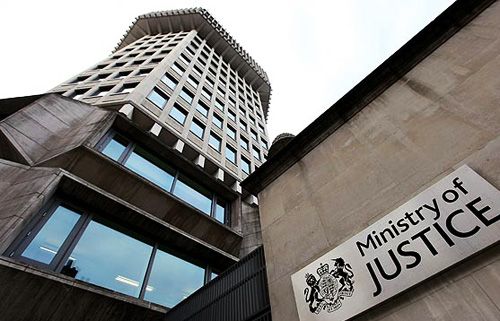
Mortgage and landlord possession volumes increased steadily throughout 2022, the latest figures from the Ministry of Justice (MoJ) reveal.
Compared to the same quarter in 2021, the October to December 2022 volumes show a marked increase, although the MoJ says it “cannot yet say whether these increases will continue at the same pace through 2023”.
Mortgage possession actions, which include claims, orders and warrants, are all currently above the previous year’s levels.
Compared to the same quarter in 2021, mortgage possession claims are up 23% to 3,160.
Mortgage orders for possession are up 50% to 2,482, warrants issued are up 88% to 2,112 and repossessions are up 134% to 733.
All mortgage possession case types have been steadily increasing since Q2 2021.
Claims, warrants and repossession volumes are now at 50%, 44% and 36% below their pre-covid baseline, which the MoJ says is “a significant increase” compared to the same quarters in 2020 and 2021.
However, it is still short of the pre-covid 2019 baseline.
The median average time from claim to repossession has decreased to 63.9 weeks, down from 112.3 weeks in the same period in 2021.
But the MoJ notes that there were much fewer cases during October to December 2021, making direct comparisons difficult.
Claims to order median timeliness decreased to 9.0 weeks, down from 17.0 weeks in the same period in 2021 while claims to warrant median timeliness decreased to 46.6 weeks, down from 96.4 weeks.
The MoJ says the long-term increases in the mean average time from claim to warrant and claim to repossession are due to an increasing proportion of historic claims reaching the warrant and repossession stages respectively in recent quarters.
Meanwhile, the number of landlord possession actions for all court stages has increased compared to the same quarter of last year.
Compared to the same quarter in 2021, landlord possession actions; claims (20,460), orders for possession (16,158), warrants (8,717) and repossessions (5,409) have increased by 42%, 135%, 103% and 98% respectively.
Data also found that landlord repossessions in the county courts rose by 98% when compared to the same quarter in 2021.
Within the landlord possession actions, the accelerated procedures have particularly risen across all the action types, claims, orders and warrants.
In Wales the accelerated procedure for claims, orders and warrants increased by 354%, 503% and 522% respectively.
Whereas in England the accelerated procedure for claims, orders and warrants increased by 69%, 148% and 182%.
MoJ highlights that this large proportionate increase in Wales could be the effect of landlords exiting the sector due to the Renting Homes (Wales) Act that was introduced on 1 December last year.
Between October to December 2022, 37% of all landlord possession claims were social landlord claims compared to private landlord claims, which accounted for 31%, while 32% were accelerated claims.
This contrasts with pre-covid proportions when around 60% of claims were social landlord claims.
The rise in claim and order volumes was seen across all regions.
A concentration was seen in London, with 5,807 landlord claims and 4,396 landlord orders at London courts in October to December 2022, accounting for 28% and 27% of the respective totals.
In London, there was an increase of 56% for landlord claims compared to that same period in 2021 and an increase of 177% for landlord orders.
The 103% increase in landlord warrants compared to October to December 2021, was accompanied by large increases across all regions.
The largest regional number of 2,758 was found in London, making up 32% of all landlord warrants.
There was an increase of 105% for landlord warrants in London where they went up from 1,347 in October to December 2021 to 2,758 from October to December 2022.
The latest figures also reveal that the median average time from claim to repossession has decreased to 21.7 weeks, down from 42.3 weeks in the same period of 2021.
The MoJ says median figures are “generally considerably lower than mean figures, demonstrating that on average, the progression from claim to successive stages can be positively skewed by outlying cases”.



